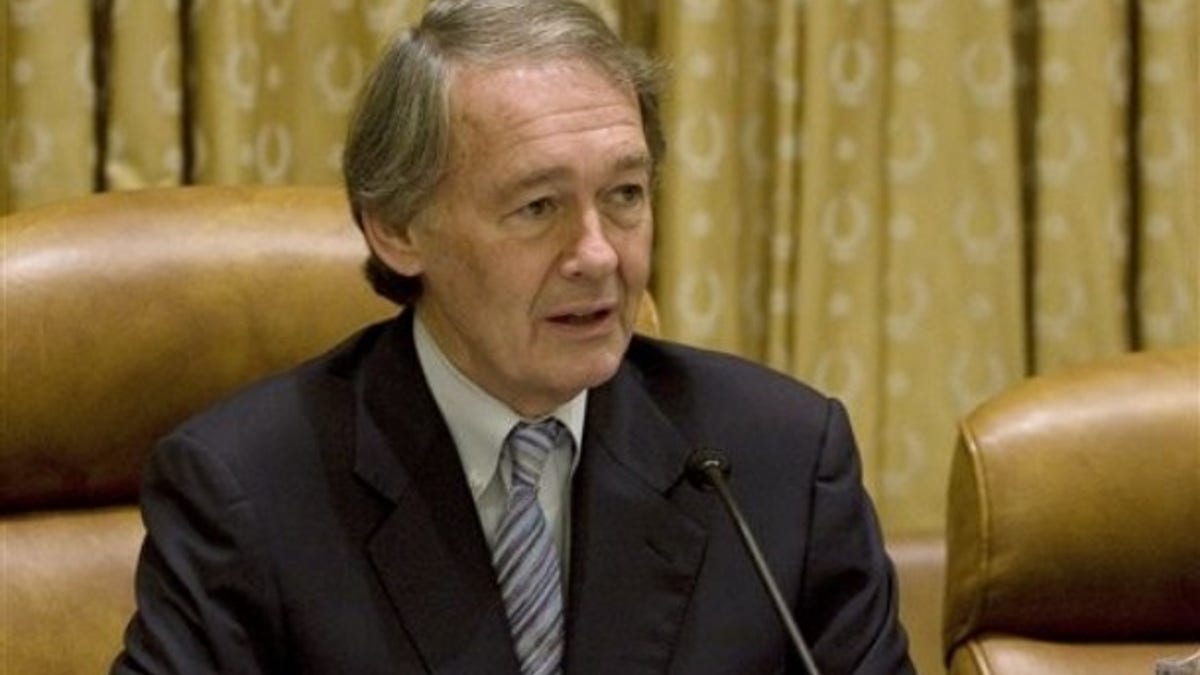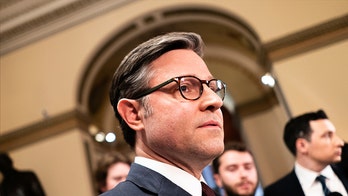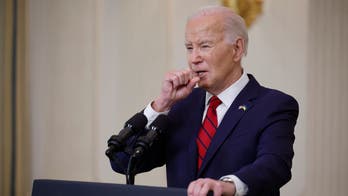
Oct. 29: House Select Energy and Global Warming Committee Chairman Rep. Edward Markey, D-Mass, presides over a committee hearing. (AP Photo)
The release of e-mails that suggest climate change data were manipulated is causing a "tree ring circus" that is trying to inflate a scandal to prevent international efforts to reduce global warming, a leading House proponent of climate change legislation said Sunday.
Rep. Ed Markey, D-Mass., who co-authored legislation to reduce U.S. manmade greenhouse gas production by 17 percent over the next 10 years, told "Fox News Sunday" that the thousands of e-mails now known as "Climate-gate" are actually a minute aspect of the overall study on global warming produced by the United Nations Intergovernmental Panel on Climate Change.
Markey's legislation with Rep. Henry Waxman passed the House of Representatives earlier this year but stalled after passing the Senate Environmental and Public Works Committee. He said efforts to try to minimize studies that prove global warming -- like one that looked at the size of rings in trees in Siberia -- will make it harder to pass legislation that could help save both U.S. industries and the earth.
"The deniers want to create a Siberian tree ring circus," Markey said. "They want to take a small percentage of this entire study, a couple pages of it -- 1,000 pages -- and throw out the conclusion. ... The real scandal will be is if we don't solve this problem for coming generations."
But Sen. James Inhofe, the ranking Republican on the Senate Environment and Public Works Committee and the top skeptic in the Senate of manmade climate change, said the data are flawed, something he warned about in a 2005 speech in which he described complaints from some scientists who claimed they were being sidelined for their dissenting views that the science is "cooked."
"They developed this to try to steer science in their direction," he said of the IPCC.
The debate over the impact of Climate-gate comes as President Obama prepares to go to Copenhagen, Denmark, for a U.N. conference now underway that aims to reduce the greenhouse gas production of several developed nations and pledge money to developing nations to reduce their emissions while they grow.
Obama goes to Copenhagen armed with an "endangerment finding" by the Environmental Protection Agency that warns of the negative impact of carbon dioxide. That finding gives Obama regulatory authority to put limits on U.S. output, a tool that he can promote at Copenhagen
Inhofe, who appeared with Markey, called the EPA finding an effort to try to "intimidate Congress into passing" legislation that he says will send jobs oversees. He added that the Senate version of the Markey-Waxman bill is dead and the lack of legislation limits the president's ability to make pledges on behalf of the United States.
The initial reductions he's talking about are what you find in Markey's bill, and that isn't going to happen. And of course, that bill's dead. It will never even be brought up again. ... So it has to come down to what can the president do without legislation. And I think that is highly limited," Inhofe said.
Markey said the president is talking about committing $3 billion to help developing countries, a fraction of the $10.5 billion in aid pledged by the European Union to developing countries over three years.
"We will have to help to fund the preservation of the rain forests of the planet. They are the lungs of the earth," he said, noting that the more the United States protects abroad, the less U.S. industries will have to do to reduce their carbon emissions.
Inhofe countered that Mexico as well as India and China, two of the fastest growing economies globally, are "chomping at the bit" for the United States to pass legislation that will send jobs overseas. He added that China holds $800 billion of U.S. debt and the U.S. Congress is not going to approve sending $10 billion more to update their electrical grid.
"I don't think that's going to happen," he said.
Inhofe also warned that the endangerment finding is built on what he described as the IPCC's flawed study and will become the subject of massive lawsuits.
But Markey responded that Congress is better off doing something than nothing because "it's no longer a question of legislation or no legislation, it's a question of legislation or regulation."
He said that action by Congress "will allow us to protect trade-intensive, energy-intensive industries" in the United States as well as consumers who may otherwise be limited by a centralized "command and control" approach of the federal government.




